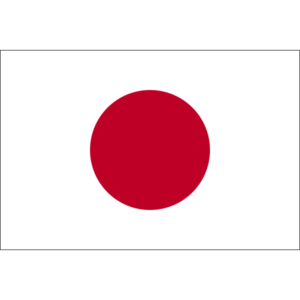Japan’s stock market has experienced remarkable growth, establishing itself as one of the most exciting investment opportunities in recent years. Despite global economic uncertainty, Japan’s economy has demonstrated resilience, buoyed by both its innovation-driven industries and a strong government push for economic reform. The Nikkei 225, Japan’s leading stock index, has reached levels not seen since the early 1990s, attracting investors from across the globe. The uptick in interest is driven by a combination of favourable government policies, a stable yen, and impressive performances in key sectors such as technology and manufacturing.
The Japanese government has made significant strides in revitalising its economy, particularly through “Abenomics,” a series of economic policies named after former Prime Minister Shinzo Abe. These policies focus on monetary easing, fiscal stimulus, and structural reforms. One of the notable aspects has been the improvement in corporate governance, with Japanese firms now prioritising shareholder value more than ever before. This shift has made the Japanese market an attractive destination for foreign investors seeking stable growth opportunities.
Japan’s tech sector continues to lead innovation, with the country known for its advancements in robotics, electronics, and green technologies. The push towards sustainability, combined with heavy investments in R&D, has made Japanese tech companies global leaders. Firms such as Sony, Toyota, and Panasonic have consistently been at the forefront of their industries, creating value for shareholders and strengthening Japan’s economy as a whole. Toyota’s initiatives in electric vehicles and hydrogen technology, for example, position it as a key player in the ongoing transition towards cleaner energy worldwide.
Another factor contributing to the appeal of Japan’s stocks is its ageing population, which has encouraged technological advancements and efficiency in health care and automation. Japan has turned what many consider a demographic challenge into an opportunity to innovate, fostering an environment where automation and AI technologies are implemented to address workforce shortages. This shift supports companies involved in robotics and advanced manufacturing, many of which are experiencing significant stock gains as global demand for automation increases.
Japan’s central bank has also played an instrumental role in supporting the economy, maintaining an accommodative monetary policy that has kept interest rates low. The Bank of Japan’s approach aims to stimulate economic growth by making borrowing attractive for businesses and individuals. This environment has helped corporations expand and invest in new projects, contributing to a more dynamic market. Furthermore, the yen’s relative stability against major global currencies has helped Japan navigate the global economic landscape with less volatility, making its markets appealing to investors who value stability amidst economic fluctuations elsewhere.
Tourism, another vital sector of Japan’s economy, has seen a steady recovery as borders have reopened, and visitor numbers are climbing again. Japan’s unique cultural heritage, natural beauty, and world-class hospitality industry continue to attract tourists from around the globe. This resurgence in tourism is giving a much-needed boost to sectors like hospitality, retail, and transport, which, in turn, supports growth across the broader economy.
Japan’s efforts to diversify its energy portfolio and reduce dependence on imported energy have also contributed positively to its economic prospects. The emphasis on renewable energy, along with nuclear power as a key component of its energy strategy, has made Japan more energy secure and less vulnerable to global oil price fluctuations. Companies in the renewable energy space, especially those involved in solar and wind power, are seeing growth opportunities as the country moves towards a greener economy.
The rising interest from foreign investors has further boosted Japan’s stock market, as they recognise the potential in the country’s well-established industries and emerging sectors. With corporate governance reforms creating more transparent and investor-friendly practices, Japanese companies are showing an increased commitment to profitability and shareholder returns. This shift not only strengthens investor confidence but also fosters a more robust and competitive market environment.
Japan’s economy continues to be supported by its highly skilled workforce, a focus on quality production, and a culture that embraces continuous improvement. These qualities have long been the backbone of Japan’s success and remain crucial as the country navigates the complexities of the modern global economy. By maintaining a commitment to innovation and efficiency, Japan is positioning itself to remain a leading economic force.
Japan’s stock market is currently reflecting the strength and adaptability of the nation’s economy. With progressive government policies, strong corporate governance, innovative sectors, and a stable macroeconomic environment, Japan remains an attractive destination for investors looking for growth and stability. The continued resilience and dynamism of Japan’s economy suggest a promising future for its stock market and overall economic landscape.
Fidelity Japan Trust PLC (LON:FJV) aims to be the key investment of choice for those seeking Japanese companies exposure. The Trust has a ‘growth at reasonable price’ (GARP) investment style and approach – which involves identifying companies whose growth prospects are being under-appreciated or are not fully recognised by other investors.



